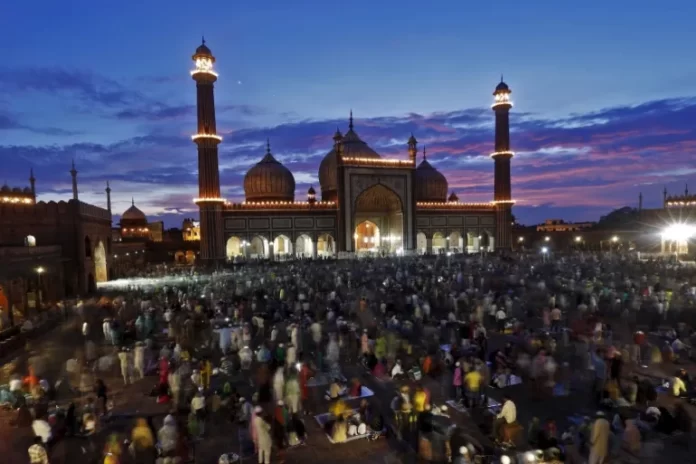Ramadan, a time of spiritual reflection, self-discipline, and communal unity, is a cornerstone of the Islamic faith. At its heart lies the practice of fasting, observed from dawn till dusk throughout the ninth month of the Islamic lunar calendar. But where did this profound tradition originate? What are the stories and events that have woven it into the fabric of Muslim culture? Let’s embark on a journey to discover the origins and history of Ramadan fasting!
Ancient Roots: Tracing the Beginnings

To understand the origins of Ramadan fasting, we must journey back through the annals of history to the beginnings of Islam itself. The story begins over 1,400 years ago in the Arabian Peninsula, where the Prophet Muhammad received revelations from Allah, the Arabic term for God, through the angel Gabriel.
- Pre-Islamic Arabia: Before the advent of Islam, fasting was not an unfamiliar concept in the Arab world. Various tribes engaged in fasting as a form of spiritual purification and ritualistic observance.
- The Revelation: The origins of Ramadan fasting can be traced to the year 610 CE when the Prophet Muhammad received the first verses of the Quran during the month of Ramadan. This pivotal event marked the beginning of a transformative journey for both the Prophet and his followers.
Emergence of Ramadan Fasting: From Revelation to Practice

With the Quranic revelation came the establishment of Ramadan fasting as a pillar of Islamic practice. The significance of fasting during this sacred month became enshrined in the teachings of Islam, shaping the religious identity of Muslims worldwide.
- Quranic Guidance: The Quran explicitly mentions the obligation of fasting during Ramadan in Surah Al-Baqarah (2:183-185), outlining the spiritual significance and objectives behind this act of worship.
- Hadith Traditions: The sayings and actions of the Prophet Muhammad, known as Hadith, provide further insight into the practice of Ramadan fasting. These traditions offer guidance on various aspects of fasting, including its rules, benefits, and etiquette.
- Spiritual Reflection and Self-Discipline: Ramadan fasting is not merely abstaining from food and drink; it is a time for deep introspection, heightened spirituality, and self-discipline. Muslims use this period to strengthen their connection with Allah, seek forgiveness, and cultivate empathy for the less fortunate.
Evolution Over the Centuries: Adaptations and Traditions
As Islam spread across different regions and cultures, Ramadan fasting underwent adaptations and assimilated local customs, enriching its tapestry with diverse traditions and practices.
- Cultural Influences: From the bustling streets of Cairo to the serene landscapes of Indonesia, Ramadan fasting manifests in a myriad of cultural expressions. Each community infuses the month with its unique rituals, culinary delights, and communal gatherings.
- Innovations and Modernity: In contemporary times, advancements in technology and globalization have reshaped the way Muslims observe Ramadan. Digital platforms connect believers worldwide, while innovative initiatives promote community engagement and charitable endeavors during the holy month.
Common Misconceptions and FAQs
As with any religious practice, Ramadan fasting is often accompanied by misconceptions and questions. Let’s address some common queries to dispel myths and foster understanding:
- Can Everyone Fast During Ramadan?: While fasting is obligatory for adult Muslims who are physically and mentally capable, certain individuals, such as children, the elderly, pregnant women, and those with health conditions, are exempt.
- Is Ramadan Fasting Only About Abstaining from Food and Drink?: While refraining from eating and drinking is a central aspect of fasting, it also entails abstaining from other prohibited acts, such as lying, gossiping, and engaging in sinful behavior.
- What Happens If Someone Accidentally Breaks Their Fast?: If a person unintentionally breaks their fast, they are required to make up for it by fasting on another day or by feeding the needy as expiation.
Conclusion: Honoring Tradition, Embracing Diversity
As we unravel the origins and history of Ramadan fasting, we encounter a tapestry woven with threads of faith, tradition, and cultural diversity. From its humble beginnings in the Arabian Peninsula to its global observance today, Ramadan fasting continues to serve as a beacon of spirituality and communal unity for millions of Muslims worldwide. As we celebrate the rich tapestry of traditions that define Ramadan, let us honor its legacy while embracing the diversity that enriches our collective experience of this sacred month. Ramadan Mubarak!
What Are the Origins and History of Ramadan Fasting? Through exploring its ancient roots, emergence as a religious practice, and evolution over the centuries, we gain insight into the profound significance of this sacred tradition. So, let’s delve deeper into the stories and events that have shaped Ramadan fasting into the cherished observance it is today!


